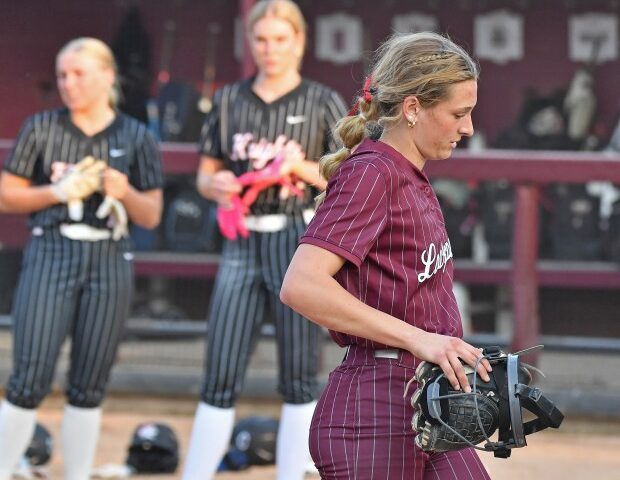Finances and staffing shortages are the two biggest challenges for hospitals in Northwest Indiana, three CEOs said Thursday.
St. Mary Medical Center CEO Janice Ryba, Dr. Daniel McCormick of Franciscan Health and Matthew Doyle of Methodist Hospitals spoke during a panel discussion at a Lake County Advancement Committee luncheon at Innsbrook Country Club in Merrillville.
“Medicaid reimbursement has not changed in 30 years,” Doyle said. “That’s an alarming number. Think of the changes in the past 30 years and the cost to provide that care.”
“For us going forward, this is extremely important,” he said, as hospitals struggle to provide care regardless of the patient’s ability to pay.
The Indiana General Assembly needs to address this, all three CEOs agreed.
Staffing costs have risen in the past four years, too.
“When you think about the cost, let’s go back in essence four years ago,” Doyle said. The official start of the pandemic was just four years ago.
“We lost a large percentage of the experienced healthcare workers who during the pandemic made a different choice,” Doyle said. “It takes time to produce a highly qualified clinical nurse.”
Hospitals are all working with the same local institutions to produce more healthcare professionals, McCormick said.
“We’re increasing our wages; we’re all doing our market analyses,” he said.
“We’re stuck with these increased expenses,” McCormick said. Wages won’t come down, either. “The expense of labor is phenomenal, and it’s not going to get better.”
When McCormick was a new physician, long hours were just part of the job. That’s changing for healthcare professionals. “Work-life balance is all the rage,” he said.
Ryba said hospitals are using nurse practitioners, allied healthcare professionals and others to address staffing shortages. Keeping patients aligned with primary care physicians helps keep them out of the emergency room, where the cost of providing care is far higher, and addresses issues before they worsen.
“Our healthcare system continues to recruit pretty aggressively,” Ryba said.
“We’re working with our high schools to recruit very early,” as well as local colleges and universities, she said.
Colleges need more instructors to expand programs to train them, Doyle said.
In 2025, a family residency program is launching in partnership with Methodist and the Indiana University School of Medicine. Doyle hopes the physicians will stay in the area when they complete their education.
Even as the hospitals deal with low Medicaid reimbursement rates and staffing issues, they continue to work to reduce costs without hurting the quality of care.
“It’s very important that we focus on efficiency and getting waste out of the system,” Doyle said.
“Our operating cost performance is worse than it was pre-pandemic,” he said.
Ryba said St. Mary Medical Center is addressing the issue by moving toward just-in-time supplies, minimizing what’s kept onsite.
New medicines are coming onto the market, and hospitals need to manage those costs, too. “That’s not just a cost issue, it also deals with quality,” she said.
Ryba gave a shout-out to staff across all the hospital systems in Northwest Indiana as they continue to provide quality care while dealing with the trauma of the pandemic.
Addressing mental health care is an additional challenge for hospitals but with some of the same forces bearing down on attempts to find solutions.
“Behavioral health is a ubiquitous program. It’s a growing program. It’s a problem affecting all of our communities,” McCormick said.
“Frankly, it’s very difficult to hire a professional. There’s a shortage of psychiatrists and professionals,” he said.
“We’re using a lot of nurse practitioners with the lack of psychiatrists out there,” Ryba said.
Franciscan is using the Dyer location to handle mental health issues, McCormick said.
However, primary care providers can address anxiety and depression. “Expanding access to primary care does indirectly affect mental health care,” he said.
That said, “there’s social issues that none of us can address,” McCormick said, including sexual assault. “Unfortunately, 50% of that is pediatric patients,” he said.
Methodist refers pediatric psychology patients elsewhere to make sure their needs are met. “At Methodist, we don’t necessarily have pediatric psych care,” Doyle said.
Community Healthcare System, of which St. Mary Medical Center is a part, is working closely with schools to address adolescents’ behavioral health issues. She singled out Hobart Superintendent Peggy Buffington as being particularly helpful in making this happen.
“We’ve been looking to gain additional partners,” she said.
Developing partnerships is important to the Region’s healthcare systems.
“It’s obvious that there needs to be better collaboration,” Doyle said. “It’s about how do we get started and how do we organize.” Nonprofits can help provide the necessary facilitation to make this happen.
Ryba mentioned partnering with the IU School of Medicine on screening questions for patients. One of the issues identified is food insecurity. As a result, St. Mary Medical Center’s social workers are working with NIPSCO, township trustees, United Way of Northwest Indiana and others.
Meals on Wheels is an important partner. Even if the patients obtain food, are they able to prepare it? With Meals on Wheels, that isn’t an issue.
“We all need to come together on this topic because some days, the needs are overwhelming,” Ryba said.
McCormick showed a 100-page community needs assessment.
“Our team and the foundation do a terrific job of supporting all of our nonprofits,” he said. Not everyone can receive funding, but the community needs assessment helps the foundation make sure the dollars aren’t diluted.
“That feedback comes back to us, and it really is the community telling us here are the issues as we see them,” Doyle said.
Methodist is addressing chronic disease management and food insecurity by having a food pharmacy, where dietitians show how to prepare food as well as providing free food, he said.
Doug Ross is a freelance reporter for the Post-Tribune.




